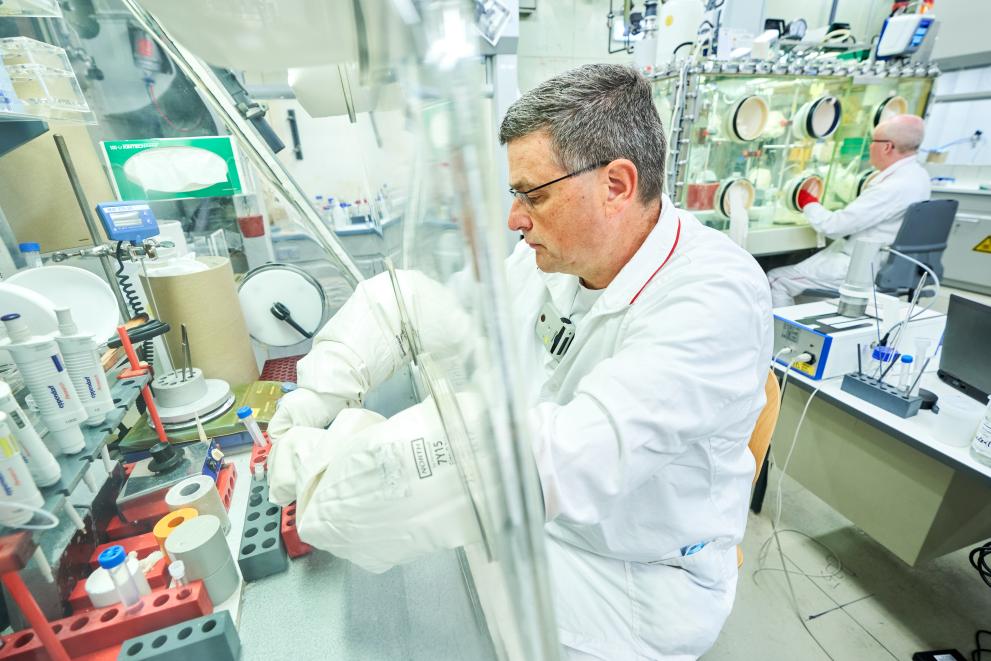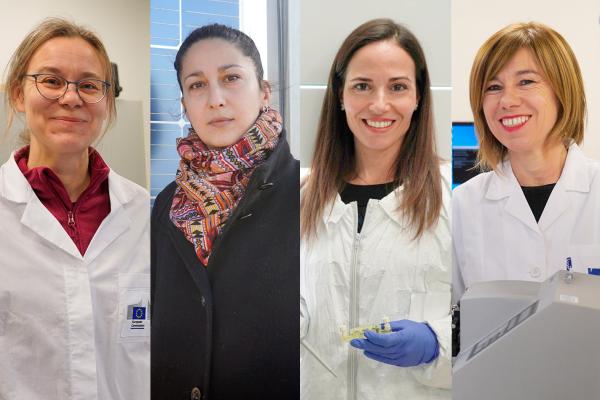
A Targeted Alpha Therapy initiated at the JRC and then further developed with the University Hospital Heidelberg – using Actinium-225 (²²⁵Ac) prostate-specific membrane antigen (PSMA) – represents a viable therapy option in patients treated with previous lines of approved agents, according to a JRC co-authored study in the Lancet Oncology medical journal.
For patients with metastatic castration-resistant prostate cancer (mCRPC) – the lethal form of prostate cancer progression – this emerging research suggests that actinium-225 (²²⁵Ac) prostate-specific membrane antigen (PSMA) radioligand therapy may have a significant impact in reducing prostate-specific antigen (PSA) levels and bolstering progression-free and overall survival rates.
In this study, researchers examined data from 488 patients between 2016 and 2023, treated at seven clinical centres across Australia, India, Germany, and South Africa. It is the largest investigation of the antitumor effect and toxicity of 225Ac-PSMA to date. This radioligand therapy has substantial antitumor effects in metastatic prostate cancer with very limited side effects. Prospective trials are needed to validate the safety and survival benefits of 225Ac-PSMA therapy in patients with this type of cancer.
For the analysed period, the study reports median overall survival of 15.5 months and median progression-free survival of 7.9 months.
The results stem from an international collaboration on Targeted Alpha Therapy (TAT), as promising novel approach to cancer therapy. If delivered directly to cancerous tissue by a targeting vehicle, the alpha particles kill tumour cells while minimising side effects to surrounding healthy organs. The JRC is a pioneer in R&D of alpha-emitters in oncology, supporting the development of therapies which target specific tumour cells and address micro-metastases of various cancer types. It supports hospitals and cancer centres in establishing the capabilities to offer Targeted Alpha Therapy treatment to cancer patients.
Under the Europe’s Beating Cancer Plan, third countries benefit directly from the actions through collaborative research within the framework of Horizon Europe, the EU’s research funding programme. The result of the Lancet Oncology study mainly stems from the collaboration between the Steve Biko Academic Hospital (SBAH) and the JRC, initiated by two experts, Prof Mike Sathekge and Alfred Morgenstern.
This cooperation has built capacity for Targeted Alpha Therapy activity in Africa to treat cancer, particularly prostate cancer patients. SBAH has become a TAT training hub for knowledge dissemination to physicians from neighbouring countries. The unique capability and experience in applying TAT to African patients available at SBAH has led to the SBAH becoming the world first controlled Phase I clinical study site on the evaluation of 225Ac-PSMA in prostate cancer patients, conducted in collaboration with the JRC and the pharmaceutical industry.
Background
In 2013-2014 the JRC together with University Hospital Heidelberg achieved a breakthrough with the development of 225Actinium-PSMA617 for treatment of prostate cancer. The two hold a patent on the drug and related compounds.
Since 2014 the novel compound has been tested clinically and provided to prostate cancer patients through collaboration of JRC scientists based in Karlsruhe with hospitals in Heidelberg, Munich and Pretoria among others. Due to the remarkable therapeutic efficacy of Ac-PSMA for the treatment of prostate cancer, its clinical use has rapidly been implemented worldwide and a prospective Phase I study is underway to move the compound to regulatory approval.
In the frame of the collaboration with the Steve Biko hospital in South-Africa, the JRC trained hospital personnel, implemented in-house developed protocols for safe handling of alpha emitters in clinical settings, supported installation of laboratory equipment and provided guidance for patient treatment with 225Ac-PSMA617 and related compounds.
The JRC is also supplying the alpha emitter Actinium-225 for clinical application. Through this collaboration, to date, more than 300 South African prostate cancer patients have been successfully treated, often with life-saving results.
The development of Ac-PSMA has won the 2017 Marie Curie Award of the European Association of Nuclear Medicine.
Related links
Details
- Publication date
- 26 April 2024
- Author
- Joint Research Centre




